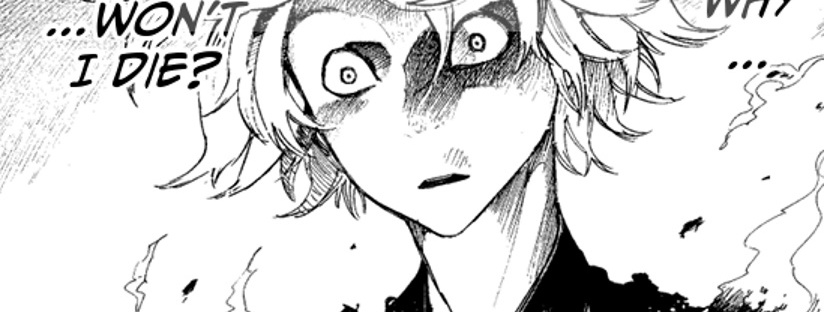Shonen Manga has become fairly predictable, most taken on the tropes that popular stalwarts such as Bleach and Naruto tackle in their initial issues and then building from there. You often get the hero that the reader is supposed to identify with, they’re usually either forced into having some excellent powers that they have to learn to harness or they’re desperate to become all-powerful and show the world just how good they are at whatever it is that everyone else in the Manga is really, really good at.
That’s not to knock those titles, and its certainly simplifying Bleach and Naruto an awful lot, and initially I was worried that Hell’s Paradise was going to be more of the same. Here we follow Gabimaru the Hollow, a Ninja that has been captured whilst on an assassination mission. He’s given the punishment of being executed, except any time the authorities try to do so their attempts are thwarted. A master swordswoman, Yamada Asaemon Sagiri, interviews Gabimaru and ultimately comes to the conclusion that despite his claims that he wants to do, he actually doesn’t and wants to return home to his wife, contradicting the legend surrounding him that he has no emotional connection to this world (and thus is “Hollow”).
From here the authorities decide to send him, along with other criminals, to an island. Each criminal is accompanied by an executioner, with Gabimaru being paired with Sagiri. Typically all of the criminals are violent in specific ways, one Kunoichi has the ability to kill via a kiss (or that is what I think she does as it’s only shown in one panel). It’s clear from the very beginning that Gabimaru is a highly skilled ninja (let’s just ignore the fact he was captured), that’s not the point of this Manga. What we have here is a Battle Royale scenario as the criminals all search the island for the Elixer of Life, many of them deciding that the way to ensure that they’re the ones who find it, and thus are awarded with a pardon for their crimes, is to turn on the rest whilst there will be others that decide to team up (though that hasn’t happened as yet).
This first volume is mostly predictable and there’s little character development, we get to establish some kind of relationship between Gabimaru and Sagiri and learn of their motives (Gabimaru wants to return home, Sagiri is a stickler for the rules and as she is a minority in a very male-led profession, has a point to prove), but it does set up the premise nicely and zips along at a decent pace, hopefully leaving further volumes to really expand on these foundations.
What stood out to me though is the amount of action within the panels, fights break out easily and we really get to see the level of skill that Gabimaru has developed. There’s a lot of gore too and in some moments it goes full-on Swamp Thing body horror as the fauna and flora of the island attempts to take over its new visitors. With that in mind, this is definitely a book created with a mature audience in mind, and squeamish readers are better off looking elsewhere. I’ll definitely be keeping an eye on future volumes.
An advanced PDF was provided for review purposes from Viz Media and NetGalley.










